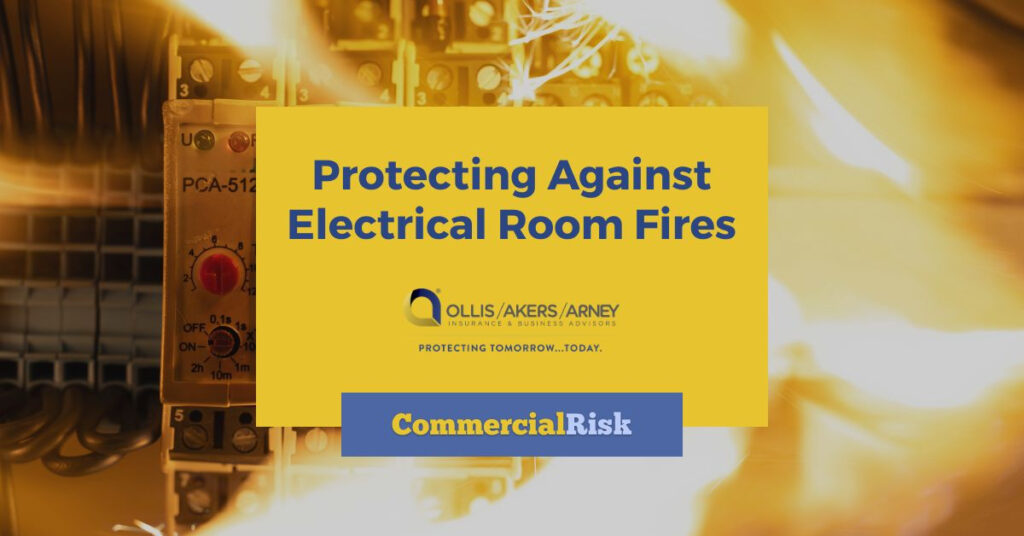Electrical rooms can pose significant fire risks if not properly designed, built and maintained. To protect people and property, it is essential for facilities to take targeted steps to mitigate these risks before they escalate.
Electrical room hazards often stem from preventable issues, including faulty electrical wiring, overloaded circuits, loose electrical connections, neglected maintenance, improper insulation, damaged or dirty equipment, overheating, electrical switch sparks, improper storage of flammable materials, static electricity, human error and short circuits. Additionally, while not preventable, natural disasters such as floods, earthquakes or lightning strikes can damage electrical infrastructure and trigger fires or explosions.
To reduce the risk of electrical room fires, property managers and business owners should ensure appropriate design measures, safety protocols and maintenance practices are in place. Strategies to consider include the following:
- Plan and layout the electrical room properly by following NFPA 70 guidelines for electrical design, installation and inspection, as well as guidelines for access, dedicated electrical space, illumination, fire resistance and construction, signage and identification, egress and workplace safety.
- Install fire detection and suppression systems by using smoke detectors, heat sensors and automatic fire suppression systems. Consult with fire protection professionals to ensure that systems are properly designed, installed and maintained, meeting all applicable requirements and codes.
- Control access by restricting entry into the electrical room to qualified and authorized personnel, thereby reducing the risk of tampering or accidental damage.
- Ensure electrical safety best practices by creating, routinely reviewing and enforcing thorough policies and procedures.
- Utilize environmental controls, such as:
- Ventilation and cooling systems to prevent overheating
- Moisture control to prevent water intrusion, leaks or condensation from forming and creating fire hazards
- Temperature regulation in the electrical room to add another safeguard against overheating
- Conduct routine maintenance and inspections of equipment by regularly checking for wear, corrosion and electrical faults to find and address issues early. Outdated components should be promptly replaced.
- Train staff on electrical room safety hazards, the proper handling of flammable materials, the use of personal protective equipment, emergency procedures, fire extinguisher use, and how to report any issues.
- Maintain housekeeping by adhering to a cleaning schedule, keeping the room and electrical components free of conductive dust or chemical residues, and ensuring the area is sealed against dirt and pests.
- Have storage rules that require the room to be kept free of flammable or combustible materials (e.g., paper, cardboard, fuel and cleaning supplies) and clutter.
- Implement lockout/tagout procedures that ensure equipment is safely de-energized during maintenance to prevent accidental startup or shock.
Electrical room safety is an ongoing commitment, and proactive risk management is essential to prevent electrical room fires. By prioritizing preventive best practices, organizations can protect their infrastructure, safeguard personnel and avoid fires. Contact us today for more information on risk management.
This document is not intended to be an exhaustive source of information nor should any discussion or opinions be construed as legal advice. Readers should consult legal counsel or a licensed insurance professional for appropriate advice. © 2025 Zywave, Inc. All rights reserved.


